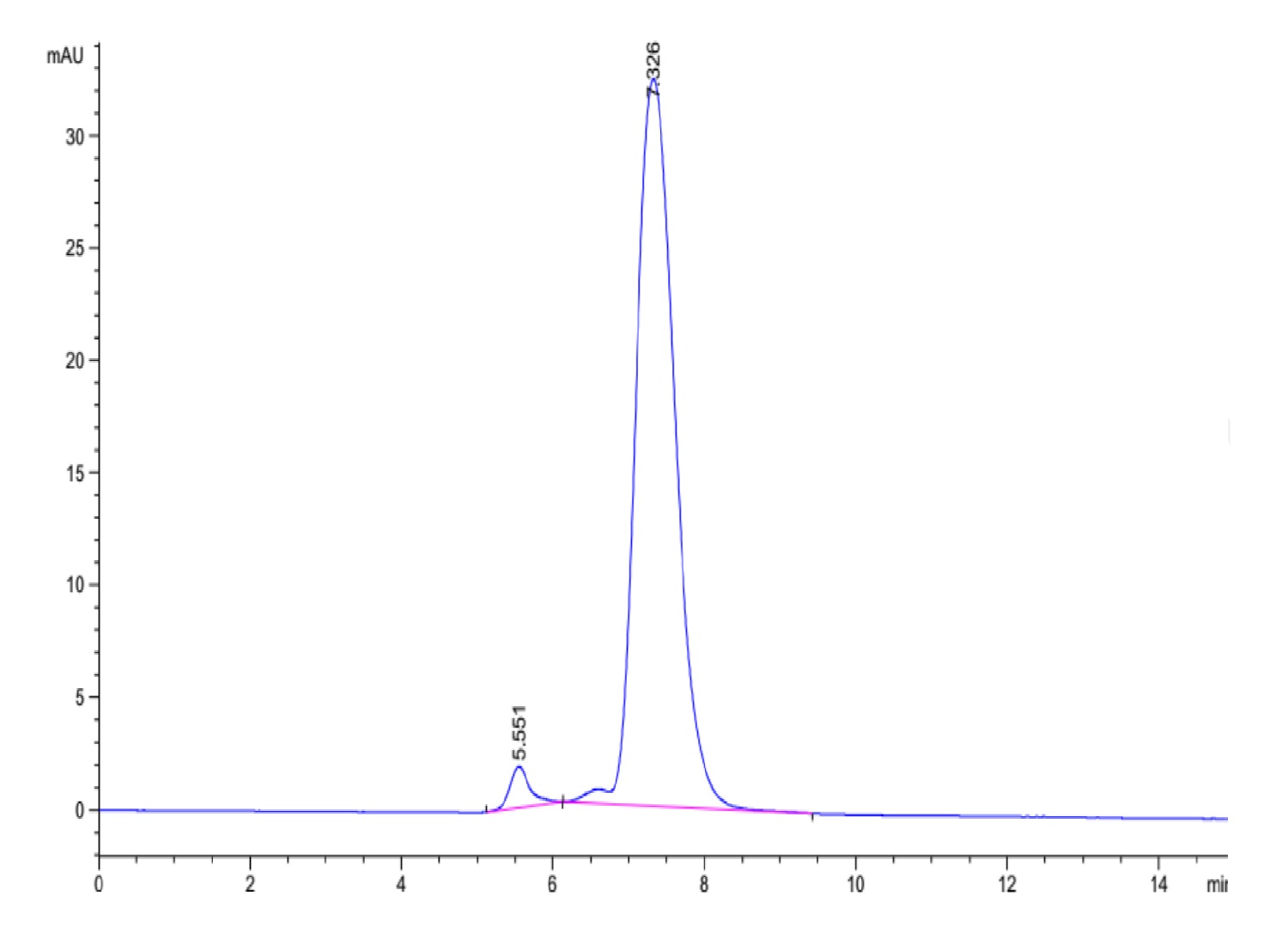|
| Mouse PILRA Protein (LTP10317) |
|
| LTP10317 |
|
| 100ug |
|
|
$406 In stock |
| Alzheimer's disease (AD) is a neurodegenerative disease characterized by a progressive decline in cognitive performance; Mild Cognitive Impairment (MCI) is instead an objective decline in cognitive performance that does not reach pathology. Paired immunoglobulin-like type 2 receptor alpha (PILRA) is a cell surface inhibitory receptor that was recently suggested to be involved in AD pathogenesis. In particular, the arginine-to-glycine substitution in position 78 (R78, rs1859788) was shown to be protective against AD. |
| Recombinant Mouse PILRA Protein is expressed from Expi293 with hFc tag at the C-terminal. It contains Glu32-Val197. |
|
| PILRA |
|
| Mouse |
|
| Q2YFS3-1 |
|
| Glu32-Val197 |
|
| The protein has a predicted MW of 45.4 kDa. Due to glycosylation, the protein migrates to 70-75 kDa based on the Tris-Bis PAGE result. |
|
| 0 |
|
| C-hFc |
|
| Expi293 |
|
| > 95% as determined by Tris-Bis PAGE; > 95% as determined by HPLC |
|
| Less than 1EU per ug by the LAL method. |
|
| Lyophilized from 0.22 um filtered solution in PBS (pH 7.4). Normally 8% trehalose is added as a protectant before lyophilization. |
|
| Reconstituted protein stable at -80 C for 12 months, 4 C for 1 week. Use a manual defrost freezer and avoid repeated freeze-thaw cycles. |
|
| Shipped at ambient temperature. |
|
| Centrifuge tubes before opening. Reconstituting to a concentration of more than 100 ug/ml is recommended. Dissolve the lyophilized protein in distilled water. |
|
|  |